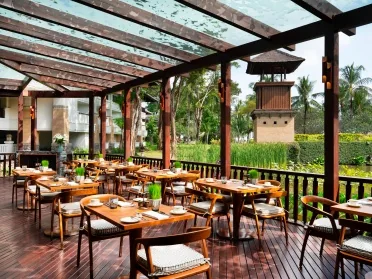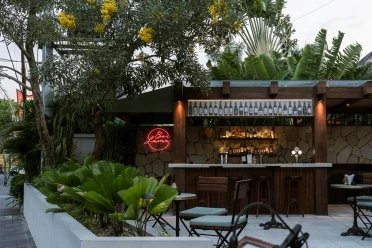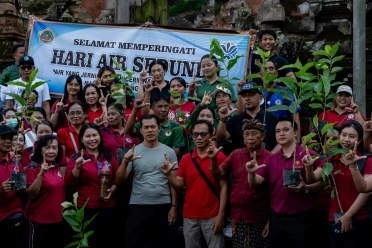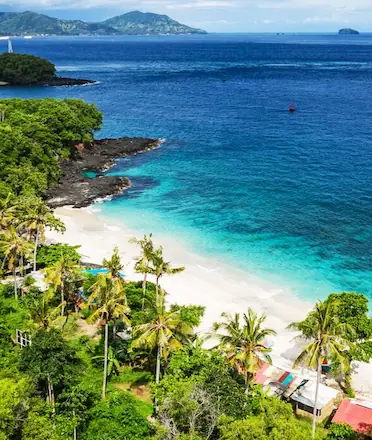Commenced the day after Saraswati celebration, Banyu Pinaruh symbolizes the cleansing of the body, mind, and soul through the purifying power of water. Similar to the Melukat ritual, this cleansing ceremony uses water as a medium for spiritual purification, reinforcing the deep connection between water and renewal in Balinese Hinduism. Let’s explore how this sacred tradition continues to shape the spiritual life of Bali.
Similar to the Melukat ritual, this cleansing ceremony uses water as a medium for spiritual purification, reinforcing the deep connection between water and renewal in Balinese Hinduism.
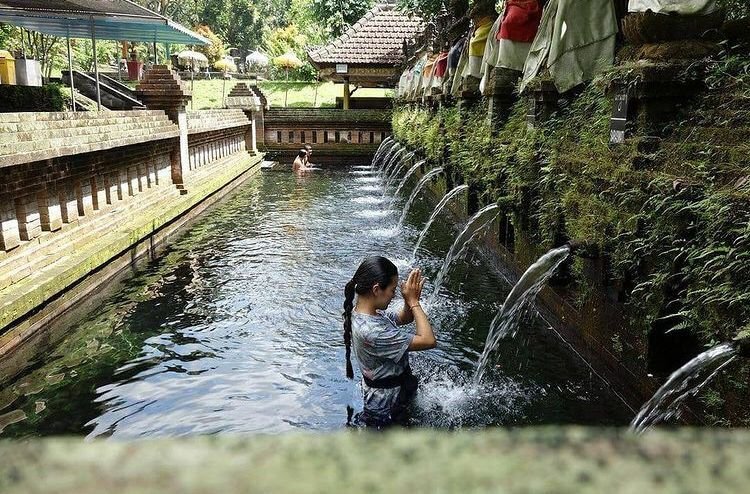
The Splash of Knowledge
The term Banyu Pinaruh is derived from two Balinese words: banyu (water) and pinaruh (knowledge). In this context, the ceremony involves sacred water that not only cleanses but bestows wisdom and enlightenment. Observed every 210 days according to the Balinese Pawukon calendar, Banyu Pinaruh takes place on Radite (Sunday) Paing, Wuku Sinta. The timing of the ceremony is significant, as it immediately follows Saraswati Day—a celebration dedicated to Dewi Saraswati, the goddess of knowledge, wisdom, and arts.
Connection with 'Melukat'
Banyu Pinaruh and Melukat are both water-based purification rituals in Balinese Hinduism, but they differ in their focus and timing. While both aim to cleanse the body, mind, and spirit, Banyu Pinaruh is specifically tied to the pursuit of wisdom and enlightenment, observed the day after Saraswati Day. Melukat is a more general cleansing ritual performed at any time to remove negative energies, restore spiritual balance, or protect individuals before significant life events. Though distinct in their focus, Melukat can be incorporated into Banyu Pinaruh if individuals feel the need for deeper cleansing or spiritual renewal. By combining the two, participants may seek both purification and protection, making the experience even more powerful.
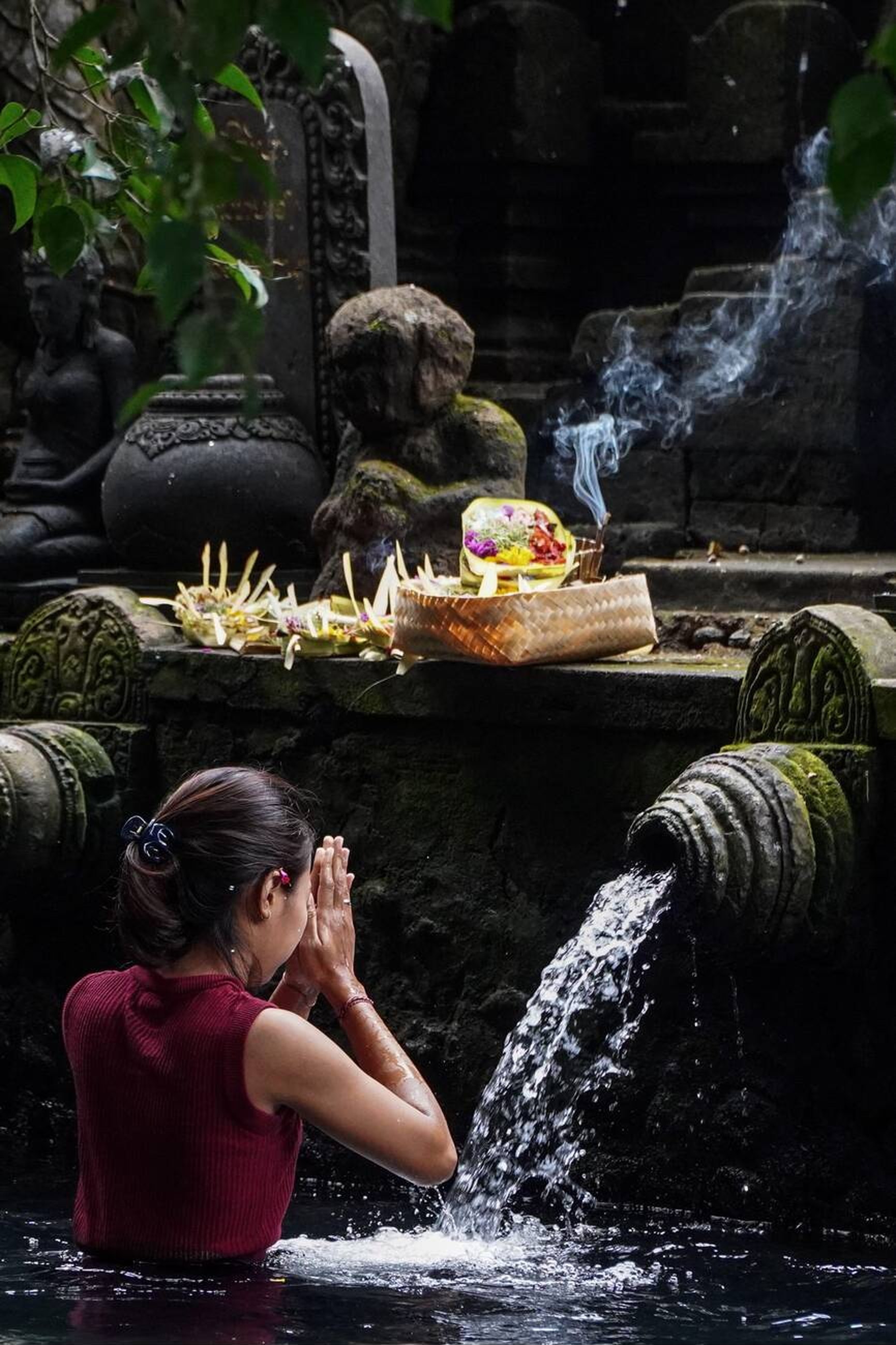
A Communal Cleansing Ritual
On the morning of Banyu Pinaruh, Balinese Hindus gather at sacred water sources—beaches, rivers, lakes, waterfalls, and holy springs—to perform the cleansing rituals. The practice typically involves bathing and washing one’s hair, acts which symbolize the removal of ignorance, misfortune, and negativity from one’s life. This process of physical cleansing is believed to promote spiritual clarity, as the individual’s mind becomes clearer and more receptive to wisdom.
As part of the ritual, devotees place offerings called canang sari near the water as a gesture of gratitude to Dewi Saraswati. These offerings, made from natural elements such as flowers, fruit, and rice, represent devotion and appreciation for life’s blessings. Many participants also take time to pray and meditate, focusing on personal growth, spiritual clarity, and the attainment of knowledge. The peaceful atmosphere of the water sources provides an ideal setting for reflection, allowing individuals to connect with their inner selves and the divine.
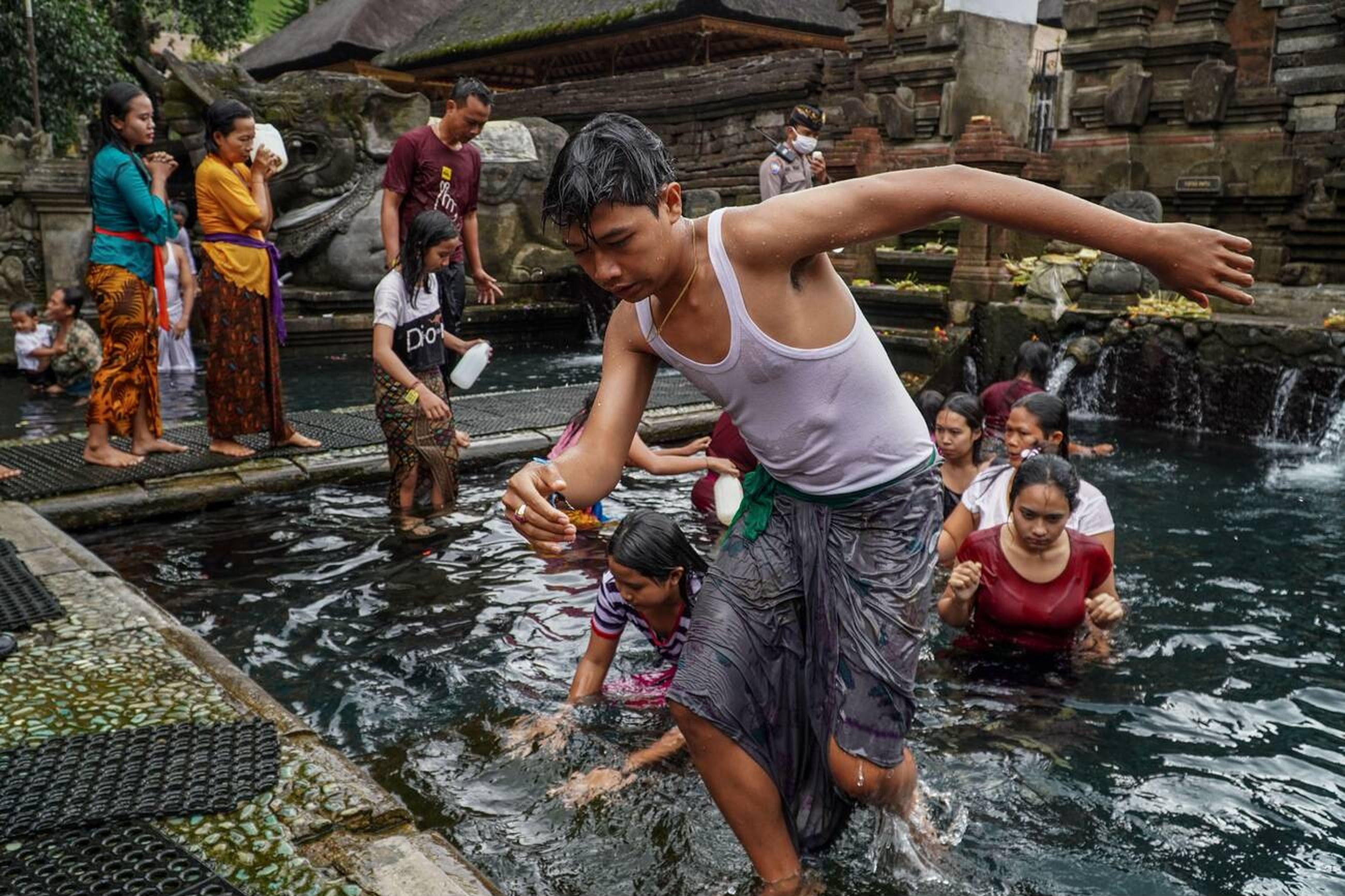
Sacred Focal Points
Sacred water sites across Bali become focal points for the Banyu Pinaruh ceremony, each one offering a unique setting for spiritual renewal. These sites, revered for their natural beauty and divine significance, are thought to carry powerful spiritual energy that enhances the cleansing process.
One of the most well-known sites for this ceremony is Tirta Empul Temple in Tampaksiring, a sacred temple renowned for its holy spring water. It is believed that the water here has purifying qualities, making it a popular location for the Banyu Pinaruh ceremony. Another popular site is Sanur Beach, where locals gather at dawn to bathe in the tranquil waters, seeking cleansing and renewal. Kuta Beach, known for its lively atmosphere, also draws many devotees on this special day. Melasti Beach and Pandawa Beach provide a serene and peaceful backdrop for purification, offering a more intimate and meditative experience.
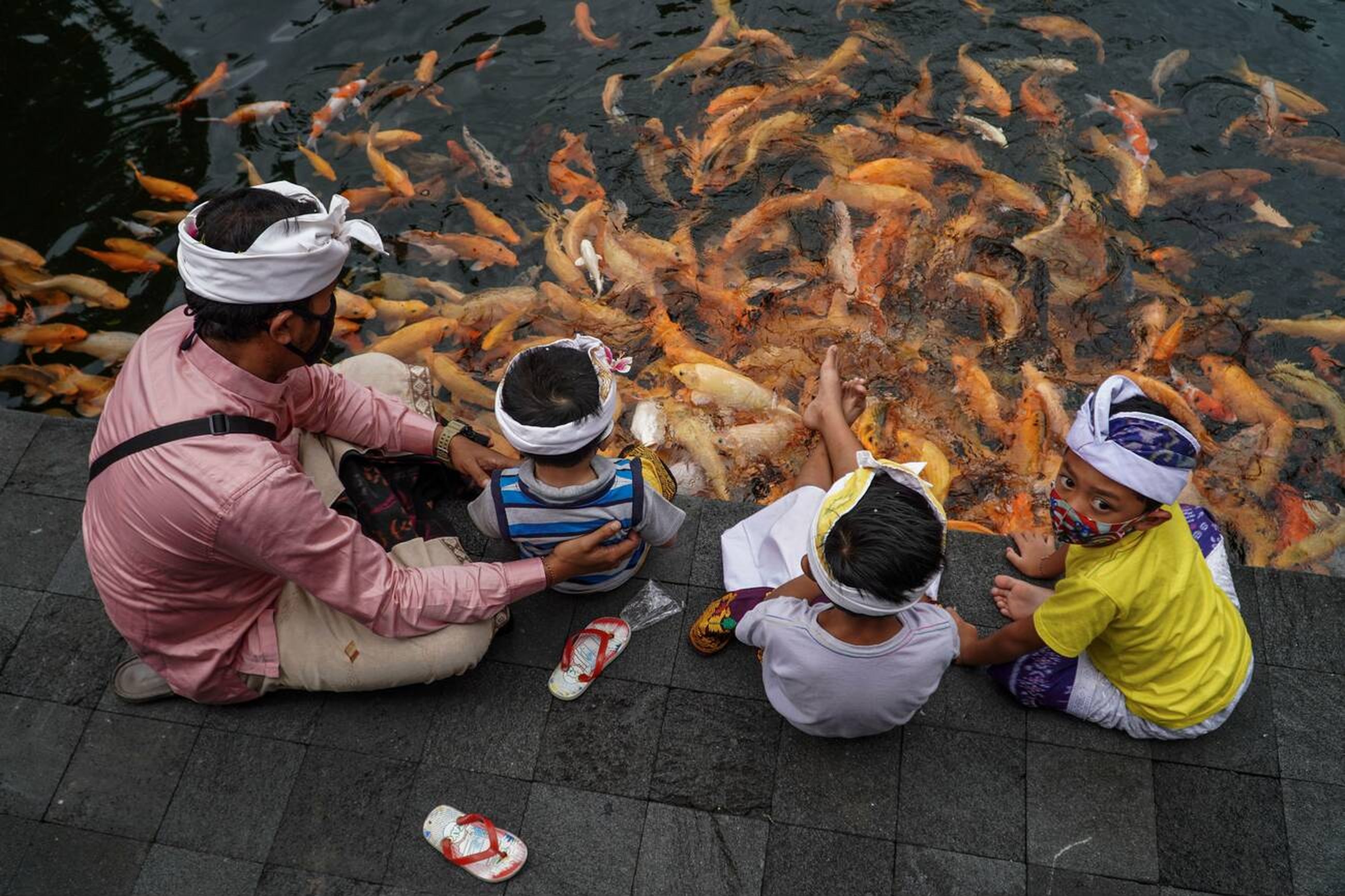
Enlightenment Through Water
Banyu Pinaruh is much more than just a physical cleansing ritual—it is a journey of spiritual awakening. By immersing themselves in the sacred waters, participants not only purify their bodies but also reaffirm their commitment to wisdom, virtue, and spiritual growth. The act of purification through water serves as a reminder that enlightenment is a continuous process, one that requires both inner and outer renewal.
As the Balinese Hindu community continues to delve themselves in cleansing waters, they reaffirm their commitment to the pursuit of knowledge, spiritual growth, and a life in harmony with the universe. Banyu Pinaruh is a timeless reminder that wisdom is not only intellectual but deeply spiritual, guiding individuals toward greater understanding, inner peace, and a profound connection with the divine.



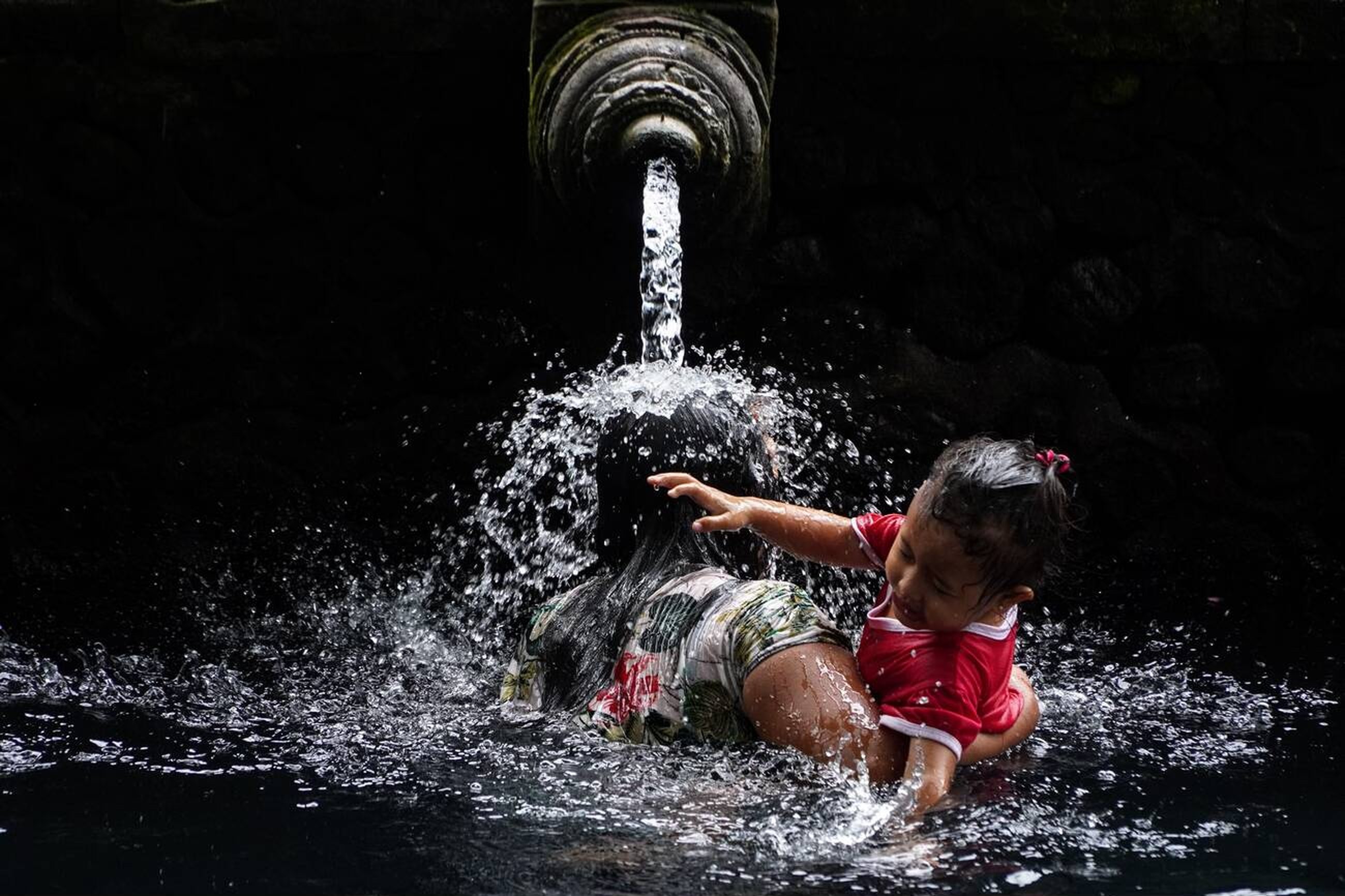
 Billy Bagus
Billy Bagus
 Feb 10, 2025
Feb 10, 2025


